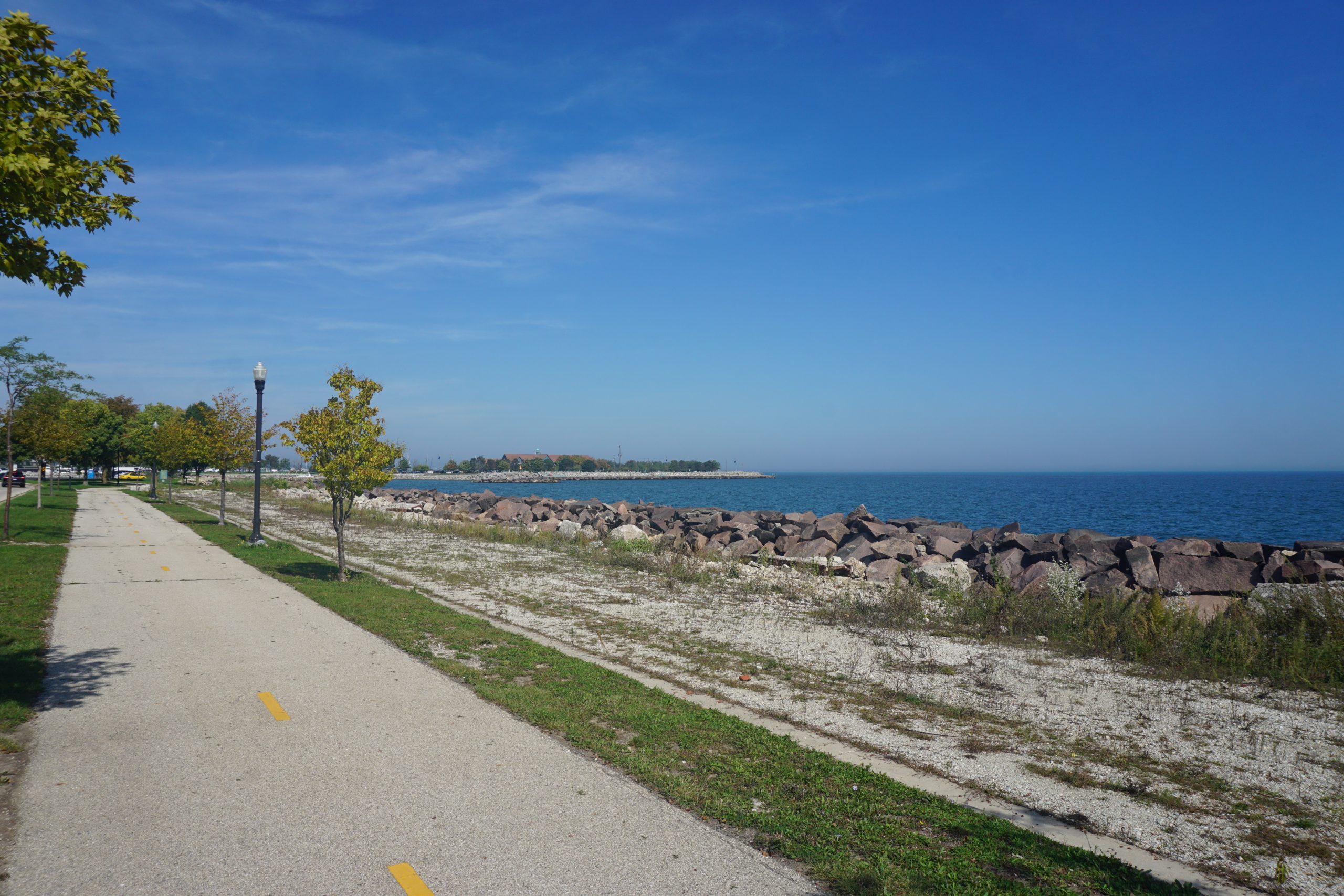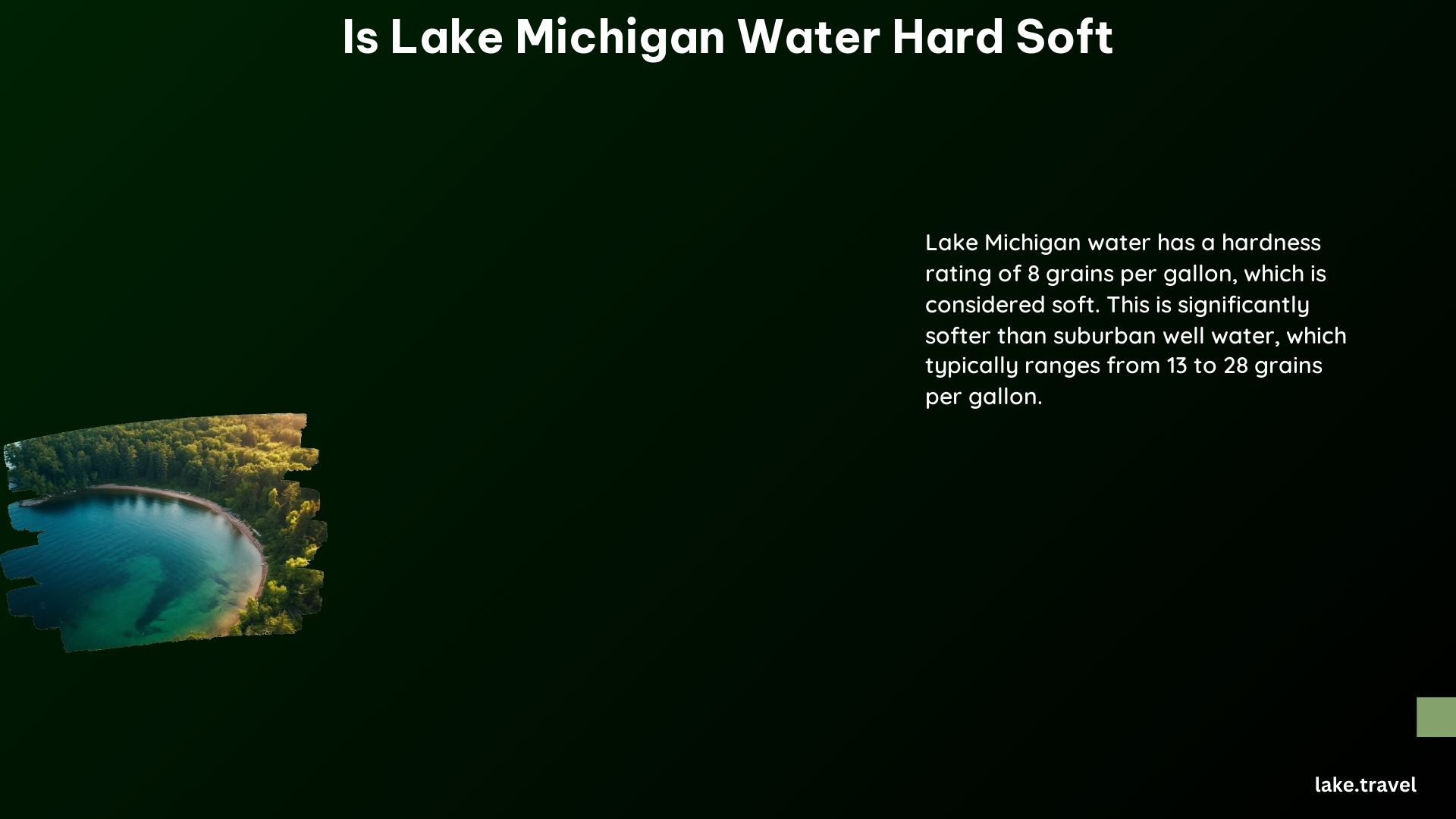Lake Michigan, one of the Great Lakes, is a significant water source for millions of people living in the surrounding regions. The hardness of the water in Lake Michigan is a crucial factor that affects its suitability for various domestic and industrial applications. In this blog post, we’ll explore the hardness level of Lake Michigan water and its implications for those who rely on this water source.
The Hardness Level of Lake Michigan Water

The water in Lake Michigan is considered moderately hard, with a hardness level of approximately 8 grains per gallon. This level of hardness is primarily due to the presence of calcium and magnesium minerals in the water, which are naturally occurring in the lake’s ecosystem.
To put this into perspective, let’s compare the hardness level of Lake Michigan water to other water sources:
| Water Source | Hardness Level (grains per gallon) |
|---|---|
| Lake Michigan | 8 |
| Well Water | 13-28 |
| Soft Water | 0-3 |
As you can see, Lake Michigan water is softer than well water, which typically has a hardness rating of 13-28 grains per gallon. However, it is still considered moderately hard, falling within the range of 7-10 grains per gallon.
Effects of Hard Water in Lake Michigan

The moderately hard water in Lake Michigan can have several effects on daily life and household appliances. Let’s explore some of the common issues associated with hard water:
Limescale Buildup
One of the most noticeable effects of hard water is the buildup of limescale in sinks, showers, and other plumbing fixtures. The calcium and magnesium minerals in the water can accumulate and form a hard, crusty deposit that can clog pipes and reduce the efficiency of appliances like water heaters and washing machines.
Spotty Dishes
Hard water can also leave spots and residue on dishes, glassware, and silverware, making them appear dull and unclean, even after thorough washing.
Skin and Hair Irritation
The minerals in hard water can also have an impact on personal hygiene. Hard water can make it more difficult to lather and rinse soap, leading to a buildup of residue on the skin and hair. This can cause skin irritation, dryness, and an unpleasant, sticky feeling.
Damage to Appliances
Over time, the buildup of limescale and mineral deposits in appliances like washing machines, dishwashers, and water heaters can reduce their efficiency and lifespan. This can lead to increased energy consumption and the need for more frequent repairs or replacements.
Mitigating the Effects of Hard Water in Lake Michigan
To address the challenges posed by the moderately hard water in Lake Michigan, residents and businesses may need to consider water softening or filtration systems. These solutions can help remove the excess minerals and improve the overall quality of the water, reducing the impact on daily life and household appliances.
Water softeners work by exchanging the calcium and magnesium ions in the water with sodium or potassium ions, effectively “softening” the water. This can help prevent limescale buildup, improve the performance of soaps and detergents, and protect appliances from damage.
Filtration systems, on the other hand, can remove a variety of contaminants, including minerals, sediment, and other impurities, resulting in cleaner, better-tasting water. These systems can be installed at the point of entry (whole-house) or at specific taps (point-of-use) to address specific water quality concerns.
It’s important to note that the choice of water treatment solution will depend on individual needs, budget, and the specific water quality issues in a given area. Consulting with a professional water treatment specialist can help homeowners and businesses determine the most effective and efficient solution for their needs.
Conclusion
In conclusion, the water in Lake Michigan is considered moderately hard, with a hardness level of approximately 8 grains per gallon. This level of hardness can lead to various issues, such as limescale buildup, spotty dishes, skin and hair irritation, and damage to household appliances.
To mitigate the effects of hard water, residents and businesses in the Lake Michigan region may need to consider water softening or filtration systems. These solutions can help improve the overall quality of the water, ensuring a more enjoyable and efficient experience for those who rely on this vital water source.
By understanding the hardness level of Lake Michigan water and the available solutions, individuals and communities can make informed decisions to address their water quality concerns and maintain the long-term health and functionality of their homes and businesses.
